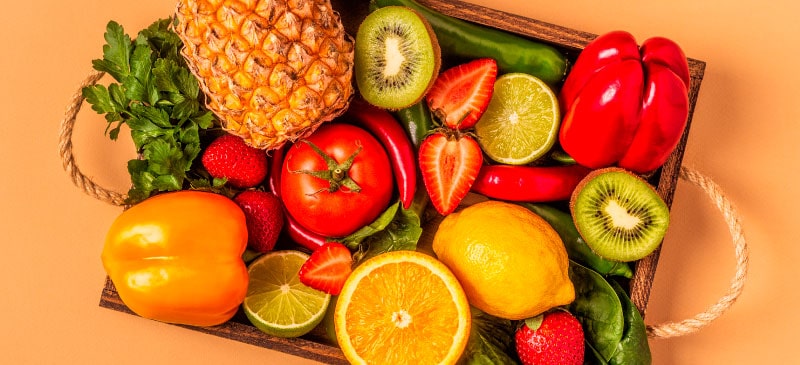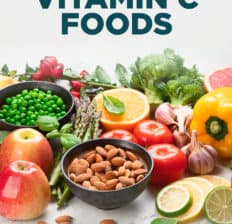This Dr. Axe content is medically reviewed or fact checked to ensure factually accurate information.
With strict editorial sourcing guidelines, we only link to academic research institutions, reputable media sites and, when research is available, medically peer-reviewed studies. Note that the numbers in parentheses (1, 2, etc.) are clickable links to these studies.
The information in our articles is NOT intended to replace a one-on-one relationship with a qualified health care professional and is not intended as medical advice.
This article is based on scientific evidence, written by experts and fact checked by our trained editorial staff. Note that the numbers in parentheses (1, 2, etc.) are clickable links to medically peer-reviewed studies.
Our team includes licensed nutritionists and dietitians, certified health education specialists, as well as certified strength and conditioning specialists, personal trainers and corrective exercise specialists. Our team aims to be not only thorough with its research, but also objective and unbiased.
The information in our articles is NOT intended to replace a one-on-one relationship with a qualified health care professional and is not intended as medical advice.
Best 20 Vitamin C Foods
January 13, 2025

There are few vitamins that boast as many health benefits as vitamin C. Doubling as both an essential nutrient and powerful antioxidant, eating vitamin C foods can have a huge impact on your health from the inside out — quite literally.
In fact, vitamin C (or ascorbic acid) works to improve everything from skin health to immune function and just about everything in between. By incorporating just a few servings of vitamin C foods (such as bell peppers and strawberries) into your diet, it’s simple to take advantage of all the health benefits that this water-soluble vitamin has to offer.
Because your body doesn’t store vitamin C or make it on its own, it’s absolutely vital to include plenty of vitamin C fruits and vegetables into your daily diet. Curently, the Daily Value* (DV) for vitamin C is 75 milligrams for women and 90 milligrams for men.
The best way to meet your vitamin C needs is by incorporating a few vitamin C foods into your diet.
Here are the top vitamin C foods to start stocking up on, according to the U.S. Department of Agriculture National Nutrient Database. Many of these foods are low in calories but full of nutrients beyond just vitamin C.
Note: The foods high in vitamin C chosen are more likely to be found in your local grocery store, rather than exotic foods like Kakadu plums. Also, a consistent measurement of one cup is used in order to provide the most accurate and fair Daily Value percentage of vitamin C.
1. Guava
1 cup (165 grams) contains 376 milligrams (418% DV)
Guava is a high-antioxidant fruit that provides a healthy dose of vitamin A and several minerals and B vitamins, in addition to vitamin C. As such, it’s great for the immune system, and guava has been shown to benefit blood pressure, digestion, blood sugar, heart health, fertility and more.
2. Black currant
1 cup (112 grams) contains 203 milligrams (225% DV)
Black currant is loaded with vitamin C, but that’s not all. It also provides a good amount of manganese, iron, potassium and other micronutrients, including anthocyanins.
3. Red pepper
1 cup (149 grams), chopped, contains 191 milligrams (212% DV)
Red pepper is rich in many essential nutrients, including vitamin C, and like other spicy foods, it can support heart health, a healthy metabolism, digestion, immune function and more.
4. Kiwi fruit
1 cup (180 grams) contains 134 milligrams (149% DV)
Kiwi nutrition is chock-full of antioxidants — including vitamin C — along with vitamins K and E, potassium, copper, and folate. This fruit is beneficial for skin, respiratory, eye, gut, heart, bone and immune health. It also may be able to help with sleep.
5. Kale
1 cup (21 grams), raw, contains 80 milligrams (134% DV)
A true superfood, the health benefits of kale stem from its high supply of vital micronutrients. It’s especially high in vitamin K and vitamin — in addition to vitamin C. That’s why it’s so valuable for bone health, along with detoxing, boosting immunity and promoting healthy development.
6. Green bell pepper
1 cup (149 grams), chopped, contains 120 milligrams (133% DV)
Green bell pepper nutrition is certainly a vitamin C powerhouse, and that’s why bell peppers are great for disease prevention and weight maintenance. These peppers also supply B vitamins, vitamin A and vitamin K.
They’re able to support eye health, mental health, skin, immunity and healthy pregnancy.
7. Lemon
1 cup (212 grams) contains 112 milligrams (124% DV)
Citrus fruits are among the top vitamin C foods, lemons included. Historically used to treat and prevent scurvy thanks specifically to its vitamin C content, lemons also boost immune, heart, kidney and skin health.
8. Strawberries
1 cup (166 grams), sliced contains 97 milligrams (108% DV)
Rich in antioxidants, strawberry nutrition has more than just vitamin C to tout. For example, strawberries provide a healthy dose of manganese, B vitamins, iron, potassium, vitamin K and more.
This delicious fruit helps protect the body against cancer, heart disease, skin damage, neurodegenerative diseases and more. Plus, strawberries are high in fiber and can aid detoxification.
9. Brussels sprouts
1 cup, cooked, contains 96 milligrams (107% DV)
Another cruciferous vegetable, Brussels sprouts have strong anti-cancer effects, and when you combine the power of Brussels sprouts nutrition overall, you can see just how much this veggie can do.
Brussels provide bone-building vitamin K, combat inflammation and heart disease, and so much more.
10. Papaya
1 cup (145), sliced, contains 88 milligrams (98% DV)
Rich in vitamin C, vitamin A, vitamin E and vitamin K, papaya benefits digestion, heart health and more. It’s also a great food to eat for people with asthma and has demonstrated an ability to fight viral infections.
11. Orange
1 cup (185 grams) contains 83 milligrams (92% DV)
As a top vitamin C food, orange nutrition can do a lot for health. When you take into account that his extremely popular fruit also supplies plenty of folate, thiamine, potassium, vitamin A, calcium, vitamin B6, pantothenic acid, fiber and magnesium, oranges can do everything from helping stave off and/or treating the common cold to potentially combating cancer, improving heart health, boosting brain function and keeping skin healthy.
12. Parsley
1 cup (60 grams), chopped, contains 80 milligrams (89% DV)
People don’t typically think of herbs and spices when they think vitamin C foods, but parsley is one of those common herbs that definitely packs a vitamin C punch. It’s also a well-known digestive aid, provides plenty of bioflavonoids and can help improve kidney health.
13. Pineapple
1 cup, chopped, contains 79 milligrams (88% DV)
The benefits of pineapple are plentiful, thanks in no small part to its vitamin C content — not to mention several other essential nutrients.
Pineapples are high in fiber, which can aid digestion, and the vitamin C in particular is great for a healthy immune system. Plus, research shows pineapple holds potential benefits for fertility, the heart, asthma sufferers, mental health and more.
14. Grapefruit
1 cup (230 grams) contains 72 milligrams (80% DV)
Like oranges, kiwi, lemons and other citrus, grapefruit benefits come from the fruit’s nutrient density. High in vitamins A and C, along with B vitamins, potassium, calcium and magnesium, grapefruit is good for weight management, cellulite reduction, fighting cancer and perhaps even reducing the risk of strokes.
15. Durian fruit
1 cup (243 grams), raw contains 48 milligrams (80% DV)
Durian is considered by experts to be a very nutrient-dense fruit — particularly high in vitamin C, B vitamins (including thiamine, vitamin B6 and riboflavin), manganese and potassium. Unusually, it’s a fruit that contains fat. As a result, it’s higher in calories than most fruits, similar to avocado.
Additionally, it supplies you with a range of protective compounds, including antioxidants, such as anthocyanins, carotenoids, polyphenols and bioflavonoids (the same types found in superfoods like berries, cocoa, red wine and green tea).
16. Broccoli
1 cup, raw, contains 69 milligrams (77% DV)
One of the top vitamin C vegetables, broccoli nutrition also supplies fiber; vitamins K, A and B6; folate; manganese; potassium; phosphorus; magnesium; and calcium. Plus, as a cruciferous vegetable, it’s also one of the top known cancer-fighting foods around.
17. Mango
1 cup (165) contains 60 milligrams (67% DV)
Mango nutrition is bursting with vitamin C, along with fiber, antioxidants, copper, vitamin A, folate, B6, vitamin E, potassium and vitamin K. It also provides zeaxanthin, quercetin, astragalin and beta-carotene.
18. Cauliflower
1 cup (107 grams), raw, contains 52 milligrams (58% DV)
You probably aren’t surprised to see cauliflower on the same list as broccoli, and that’s not a coincidence. While it’s a bit lower in vitamin C than broccoli, this similar cruciferous veggie provides many of the same nutrients and has many of the same benefits.
Cauliflower is particularly known for its high supply of phytonutrients, and we know those compounds benefit just about every aspect of health.
19. Honeydew
1 cup (177 grams) contains 32 milligrams (35% DV)
Less heralded than the similarly healthy cantaloupe, honeydew deserves some love. This less preferred fruit provides all the benefits of vitamin C and also helps you stay hydrated.
20. Peas
1 cup (160 grams), cooked, contains 23 milligrams (25% DV)
Believe it or not, green peas are high in vitamin C and several other important nutrients. They’re high in protein, fiber, vitamin K, manganese, thiamine, vitamin A, folate, phosphorus, B6, niacin, magnesium, riboflavin, copper, iron, zinc and potassium.
As such, peas can aid in weight loss, provide a great source of plant protein, support blood sugar control, promote healthy digestion and even protect against cancer.
*Daily Value: Percentages are based on a diet of 2,000 calories a day.
Final Thoughts
- What does vitamin C do? Vitamin C is a water-soluble vitamin that acts as an antioxidant and plays a role in immune function, free radical reduction and more.
- What foods are high in vitamin C? Although it can be found in a number of healthy foods, the highest vitamin C foods are generally fruits and vegetables, such as bell peppers, kiwis, guavas and black currants.
- While supplementation is available, including a good variety of foods with vitamin C can help you easily meet your daily needs.
- Opt for raw instead of cooked when possible to maximize the vitamin C content of your favorite foods.


